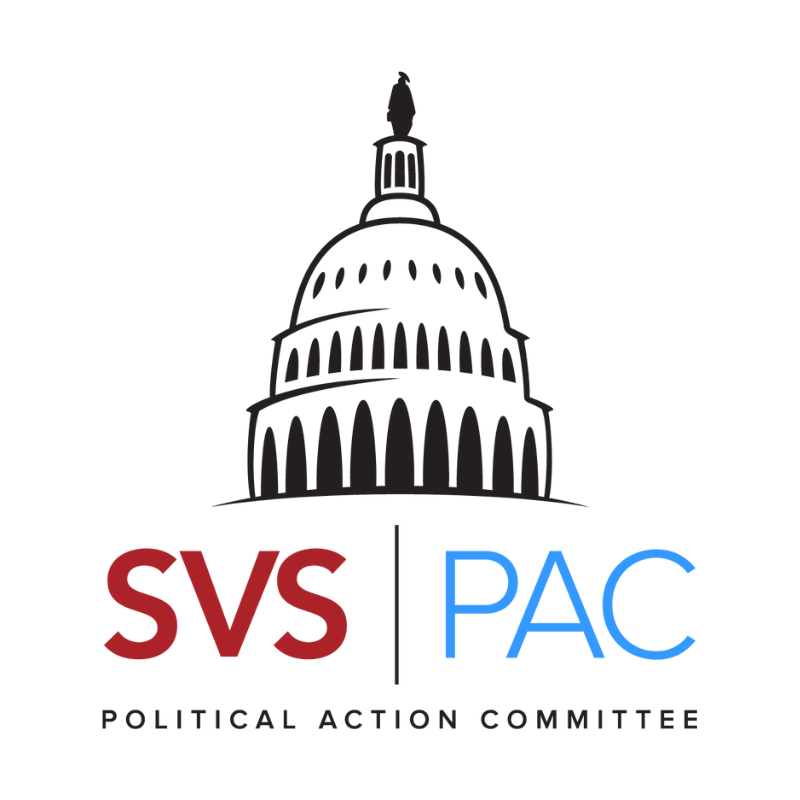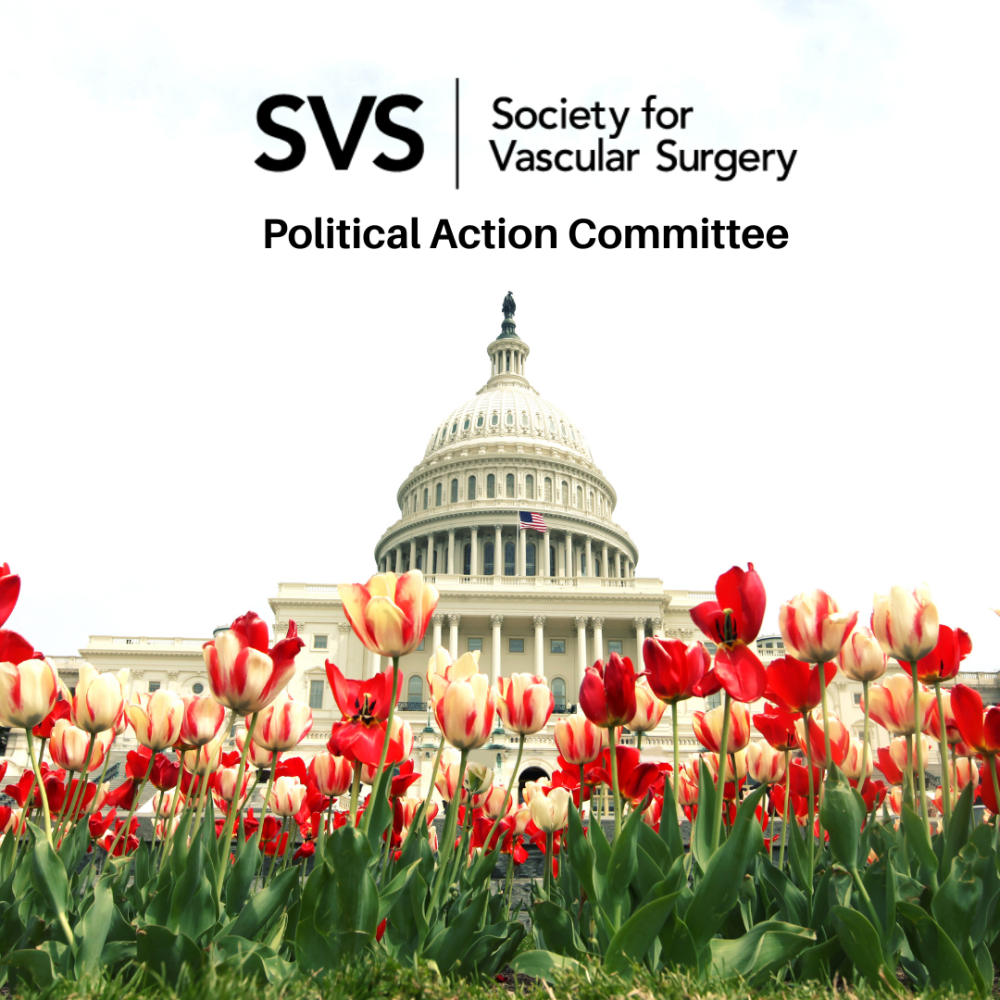Political Advocacy

Political Action Committee
SVS PAC serves as the collective voice of vascular surgery and supports lawmakers who champion our legislative priorities. As a critical advocacy tool, SVS PAC helps to build relationships with lawmakers who serve on health-related committees and/or who share a vested interest in healthcare issues. SVS PAC contributions are an investment in the future of the specialty.
Fast Facts:
- SVS PAC is non-partisan—supporting both republicans and democrats who champion our issues on Capitol Hill.
- SVS PAC is issue-driven—identifying lawmakers with an articulated interest in advancing policies that will protect and support vascular surgeons and the patients you serve.
- 94% of Congress has NO healthcare background, yet 100% vote on healthcare issues!
- 100% of PAC contributions are utilized in support of candidates/incumbents who will champion SVS priorities and work to positively impact the practice of medicine.
- SVS PAC facilitates access to federal lawmakers and provides an opportunity for meaningful relationship building between SVS and federal lawmakers.
*SVS PAC is the political action committee of the Society for Vascular Surgery and its goal is to support and elect pro-vascular surgery candidates at the federal level. Support for SVS PAC is strictly voluntary and you have the right to refuse to participate without any reprisal. Contribution guidelines are merely suggestions and you may contribute more (up to $5,000 per year), or less, or not at all. Contributions to SVS PAC are not deductible for federal income tax purposes. Only US citizens or persons lawfully admitted for permanent residency ("green card" holder) in the United States are eligible to contribute to SVS PAC

SVS PAC
US health laws and payment models are undergoing a seismic shift. The SVS Political Action Committee (PAC) works for vascular surgeons, and only vascular surgeons, to ensure that SVS members get access to U.S. Representatives and Senators in order to discuss issues that have a major impact on members and their practices.